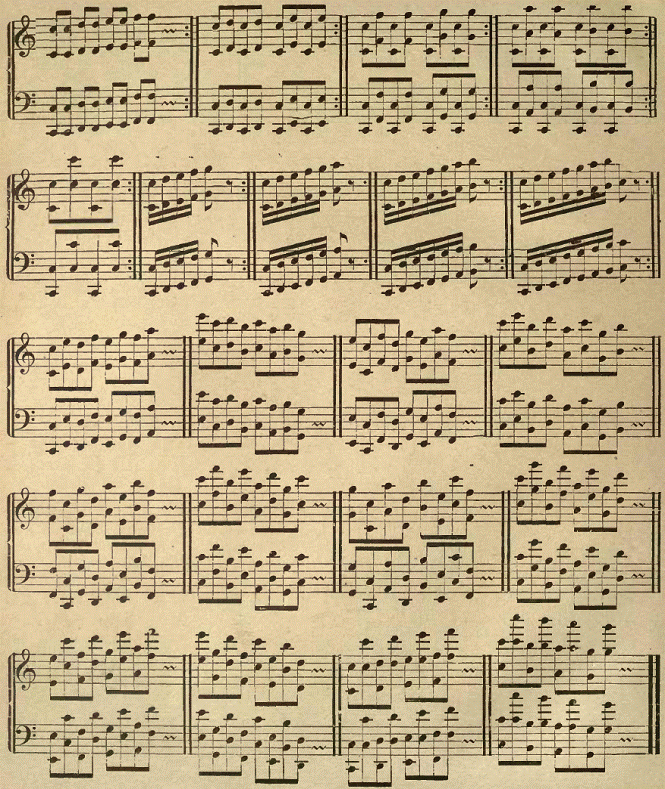Perhaps it's because I respect my teacher, but I can't help but think that the Russian way is great, though perhaps not superior to other schools of thought. It seems undeniable that the dedication and focus on technique is what makes so many Russian pianists great. It seems to me, however, that the work ethic may have been taken too far, creating many Russian alcoholic pianists along the way.
I appreciate the Russian individualistic approach to pedagogy. This is something I have definitely experienced in my lessons with Dr. Nosikova as well. She often gives me many options, and lets me create my own way, while helping me to create good arguments for why I want to do what I do, something that can be compared to the likes of Lhevinne and also Leschetizky. This idea, of course, is not purely Russian. In my opinion, the only way to be a successful at anything, is to omit as much comparison as we possibly can, for ourselves and for our students.
While Rubinstein screamed at his students "3000 times!", p. 295, we see the completely opposite opinion from Mr. Horowitz. He suggests that "It is not necessary to repeat the work all the way through. A piece can be practiced 100 times and when it is taken to the stage it can sound simply like practicing for the 101st time-it is not fresh. In my work I play a new large-form composition all the way through to obtain an overall viewpoint of it's meaning and structure. Then I do not play it all the way through again until it is ready for public performance" (306). This question is something that I debate with myself over and over again in the practice room. Do I practice this passage slowly? Quickly? Hands together, or separate? Stacatto or with pedal? One thing is for sure, incorrect practice will lead to poor performance. It's very important to consciously decide how you are going to practice it, rather than just playing through it over and over again.
Again, with practicing, personally I like to practice (for the most part) without the score once something is memorized. Other people never seem to practice without the score. I wonder if there is an ideal way? And perhaps what the Russian viewpoint on that would be?
Excessive or not, I believe everyone can learn something from the Russian system. Aside from specifics, we can see the importance of conscious, intent practicing, and how the benefits come out of Russia regularly, in the form of incredibly talented pianists. In my opinion, technical study is crucial, especially at a young age. And above all, Russians are completely devoted to the music from a young age, they have an appreciation for the arts which greatly outweighs our own, in this country.

I am the same way about practicing without the music once a piece is memorized. I still go back to the score regularly for a time away from the piano to make sure none of the details have been missed though. Practicing away from the piano has also helped develop pure musical ideas without being inhibited by technique; then when I go back to the piano it is a lot easier to bring these ideas out.
ReplyDeleteI think the biggest thing to take away from the Russian school is conscious practicing. If we aren't paying attention we can't analyze ourselves and get closer to becoming independence from a teacher.
ReplyDeleteOver the past couple of years I have come to practice with scores more after memorizing. Before my last performance, I used the scores for nearly all practice aside from run-throughs or memory tests, of course. I wasn't deliberately reading them the whole time, but I referred to them frequently. It might have been partly the reassurance of having them and the consistent visual reinforcement, but I thought it worked well for me.
ReplyDelete